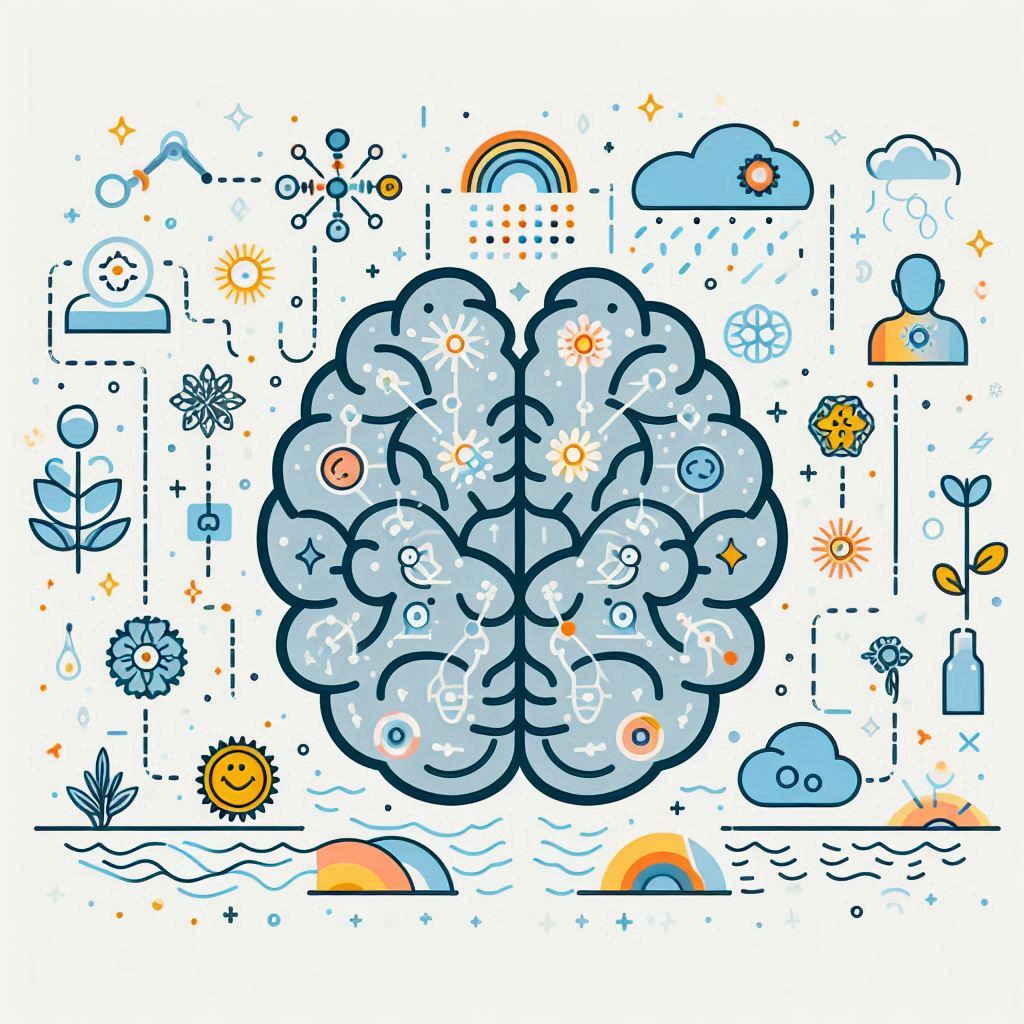How Gratitude Saved My Sanity: A 5-Minute Daily Practice That Actually Works
The Real Deal on Using Gratitude When Life Gets Messy
OK so last Tuesday? Total disaster. Woke up late (again), dumped coffee all over my keyboard, and got stuck in traffic so bad I missed the meeting I was supposed to lead. By lunch I was ready to crawl under my desk and stay there til retirement.
Sound familiar? Yeah, thought so.
But here’s the thing I stumbled onto after like a zillion days like that – sometimes just shifting what I’m focusing on changes EVERYTHING. And that’s basically what gratitude is, minus the woo-woo packaging it usually comes wrapped in.
Look, when my friend Jen first suggested gratitude journaling, I literally laughed in her face. Sorry Jen! But seriously – I was drowning in deadlines and family drama, and her solution was… be thankful?? Come on.
But I was desperate enough to try anything. And weirdly… it kinda worked? Not in a magical unicorn way, but in small shifts that added up. The science actually backs this up too (I looked it up when I couldn’t believe it was helping). Turns out gratitude messes with your brain chemistry in a good way. Who knew?
Stick around and I’ll share the super simple gratitude tricks that take literally 5 minutes but have kept me from losing it completely these past few months. No crystals required, promise.
Why Gratitude Actually Matters When Everything’s a Dumpster Fire
Life in 2025 is just… a lot. My inbox never stops, my kids need 37 things signed yesterday, and don’t even get me started on trying to keep plants alive while doing all that. Feeling totally overwhelmed is basically my default setting most days.
That’s exactly why I was shocked when this gratitude thing made an actual difference. It’s like a mental reset button that doesn’t require meditation skills I definitely don’t have.
Dr. Kim at UC Berkeley (who I may have slightly internet-stalked after seeing her research) found that regular gratitude practice bumps happiness by roughly 25%. At first I was like “yeah right” but after a few weeks I had to admit – the days I scribbled down some grateful thoughts were way less awful than the ones where I didn’t.
The big mistake I made at first? Thinking I needed to be grateful for huge impressive stuff. Turns out it’s usually the tiny things that shift your day. Like when the barista remembers your order. Or finding that one matching sock you thought was gone forever. Or when your teenager actually acknowledges your existence with a non-grunt (rare but beautiful).
My therapist Maria dropped this truth bomb that stuck with me: “Gratitude doesn’t fix your problems, but it changes how much power they have over your mood.” That hit different.
My Friend Kelly’s Gratitude Journey (aka How a Cynical Workaholic Found Her Chill)
So my college buddy Kelly – literally the most skeptical person I know – has this story that still blows my mind. She’s a freelance designer in Seattle, total workaholic. The kind who forgets to eat when she’s on deadline and thinks 4 hours of sleep is “plenty.”
Last year she hit a wall HARD. Panic attacks, couldn’t sleep even when she tried, the works. We grabbed coffee during her rock bottom moment and she looked ROUGH. Eyes all puffy, hands shaking from way too much caffeine and way too little rest.
A couple weeks later, her doctor basically ordered her to try something – anything – to manage her stress. She downloaded some random gratitude app mostly to get her doctor off her back.
“First week was stupid,” she told me later. “I literally wrote ‘grateful my laptop didn’t die’ three days in a row because I couldn’t think of anything else.”
But she kept at it, mostly out of stubbornness. Around week three, something shifted. Not dramatically – she didn’t turn into a zen master overnight. But she noticed she wasn’t immediately checking her email before even getting out of bed. Small win, but huge for her.
When we met up again last month, I almost didn’t recognize her. Still busy, still Kelly, but not vibrating with anxiety. She said her panic attacks had dropped by like 70%. “I still get stressed,” she admitted while stealing half my muffin (some things never change), “but I don’t immediately go to worst-case scenario mode.”
The wild part? Her gratitude practice is super basic. Just three bullet points before bed on her phone’s notes app. That’s it. No scented candles, no special journal, nothing fancy.
“Having to find three decent things that happened sort of forces me to notice them during the day,” she explained. “It’s like my brain is collecting evidence that not everything sucks.”
If it worked for Kelly – who once described meditation as “torture for people who hate themselves” – it might work for you too.
How Gratitude Messes With Your Brain (in the Best Way Possible)
I got curious about WHY this was working, so I went down a research rabbit hole. Turns out there’s actual science behind why noticing good stuff changes how you feel:
- It’s Like a Happiness Hit: When you think grateful thoughts, your brain squirts out dopamine and serotonin – basically the same chemicals that make you feel good after exercise but without the sweating. My cousin’s a neuroscience nerd and explained it like this: “Your brain loves patterns, and what you repeatedly focus on creates stronger neural pathways.” So basically, gratitude is like creating a shortcut to feeling better that gets stronger each time you use it.
- Stress Hormones Take a Nosedive: This blew my mind – researchers found gratitude can cut your cortisol (the stress hormone that makes you feel like garbage) by around 23%! No wonder I’ve been sleeping better since starting this. My body’s literally calming down because my brain isn’t constantly hitting the panic button.
- You Get Emotionally Tougher: Before, small problems felt like emergencies. Bad traffic? Day ruined. Criticism at work? Clearly I’m getting fired. But something shifts when you regularly notice what’s going right – you develop this weird ability to see the bigger picture during crappy moments. My friend Jake calls it “problem right-sizing” – issues still exist but they don’t take over your entire emotional landscape.
- Your People Get Better (or You Notice When They Already Were): The most unexpected benefit? My relationships improved when I started occasionally telling people exactly what I appreciate about them. Not just generic “thanks” but specific stuff like “I noticed how you always remember to grab napkins” or “that thing you said in the meeting really helped me.” People light UP when you do this. And weirdly, I started noticing more good things about them too.

Real-Life Ways to Do This Without Being Annoying About It
OK so you’re thinking “fine, I’ll try it – but HOW exactly?” Here’s what’s worked for me and my equally skeptical friends:
- The Bare-Minimum Journal Approach: Keep expectations LOW. Some nights I literally write “didn’t get fired, dog didn’t puke on carpet, found parking spot near door.” That’s it. Three things before bed, usually takes 90 seconds. The fanciest it gets is sometimes using a colored pen. The key is doing it most days, not doing it perfectly.
- Text Someone Some Appreciation: This is my go-to when I’m too tired to journal. Just send one genuine thank you text to someone for something specific. Like “hey that playlist you sent last week has been getting me through these awful spreadsheets, thanks!” Double benefit – you feel better AND you make someone else’s day.
- Red Light Gratitude Game: I used to spend red lights checking my phone (bad, I know). Now I use them as 30-second gratitude moments. Before the light changes, I have to think of 3 things that weren’t terrible today. Transforms waiting time into a mental reset button.
- The Anti-Complaint Walk: When everything feels awful, I take a 10-minute walk with one rule: can only think about what’s NOT broken. Sometimes it’s pathetic stuff like “well at least my shoes still fit” but it works anyway. Something about moving while thinking makes the good stuff easier to find.
- Phone Alarms with Weird Labels: I set random alarms with labels like “what didn’t suck today?” or “notice something not-terrible.” They pop up when I’m usually getting cranky (hello 3pm energy crash) and jolt me out of spiral thinking. My coworker thought I was nuts until she tried it – now her phone buzzes at noon with “find one non-annoying thing about today.”
The Ways I Almost Screwed This Up (So You Don’t Have To)
Fair warning – I crashed and burned a few times with this gratitude stuff before figuring it out:
- Instagram-Perfect Gratitude: First attempt? Bought a gorgeous leather journal I was too intimidated to write in. It sat empty for months while I felt guilty. Now I use the back of receipts sometimes. Zero aesthetic, works just fine.
- Toxic Positivity Territory: There was a week where I tried to ONLY focus on gratitude when I was actually going through a legitimately terrible time. Made everything worse. Some days it’s OK if your gratitude list is just “I’m grateful this awful day is almost over.” Honesty beats forced cheerfulness every single time.
- Comparison-itis: My sister does this whole elaborate gratitude ritual with candles and special pens. I tried copying her and lasted exactly 2 days. Your gratitude practice should match YOUR life and personality. Mine’s messy and often involves sitting in my car for 3 minutes before going inside. Still counts!
- Bypassing Real Feelings: Biggest mistake was using gratitude to avoid feeling legitimately crappy emotions. Turns out suppressing feelings makes them come back stronger (thanks for that insight, very expensive therapy). Now I acknowledge the frustrated/sad/angry feelings FIRST, then look for small bright spots alongside them. Both can exist at the same time.

The Ripple Effects I Never Expected
The strangest part of this whole gratitude experiment has been noticing how it’s changed things I never thought were connected:
- Arguments with my partner don’t escalate as quickly. We still disagree but I’m less likely to bring up that thing from 2018 that has nothing to do with the current issue.
- I actually notice when people do nice things instead of just expecting them.
- Small joys register more – like really good coffee or when the dog does something hilarious.
- I fall asleep faster most nights instead of replaying every awkward thing I’ve ever said.
My friend Sam (who started his gratitude practice after watching mine work) says his team meetings have gotten way less toxic since he implemented a quick “wins of the week” roundup at the start. People actually show up on time now just for that part.
This stuff spreads in weird ways. Not in a forced “everyone must be grateful!” way, but more like people notice you’re less reactive and wonder what’s different.
The Honest Truth About My Gratitude Journey
Let’s be real clear – I still lose my cool sometimes. I still stress about deadlines and occasionally catastrophize minor problems. I’m not floating around on a cloud of perpetual bliss or anything.
But the difference is those moments don’t define my entire day anymore. I recover faster. The emotional swings aren’t quite so extreme. It’s like having guardrails on a mountain road – you might still swerve, but you’re less likely to go completely off the cliff.
Some days writing down grateful stuff feels like a chore. Some days I forget entirely. But after about 3 weeks of mostly-consistent practice, I noticed I wasn’t getting knocked sideways quite so easily by everyday annoyances.
If your emotional life feels like you’re constantly being tossed around by whatever happens each day, maybe give this gratitude thing a shot? Start ridiculously small – literally just pause right now and think of ONE thing that wasn’t terrible today.
For me, it was finding the last coffee pod when I thought we were out. Tiny win, but it made me smile for a second. And sometimes one second of noticing what’s good is enough to shift the next hour of your day.
So… what’s your one tiny good thing been today?
Bottom Line: Is This Gratitude Stuff Worth Bothering With?
Here’s my totally unscientific conclusion after 7 months of imperfect gratitude practice: yeah, it actually helps.
Not in a life-changing, suddenly-everything-is-perfect way. More like how putting on sunscreen doesn’t guarantee you won’t get burned, but makes it way less likely and less severe if you do.
Gratitude doesn’t fix your problems. Your annoying coworker will still be annoying. Bills still need paying. Kids still leave socks everywhere. But your reaction to all of it shifts slightly, and that slight shift makes the difference between a completely ruined day and one where you can still find moments of OK-ness.
The starting point couldn’t be simpler. Notice one non-terrible thing today. Maybe jot it down. Do it again tomorrow.
That’s it – that’s your entire entry point to more balanced emotional responses. No special equipment required, no membership fees, no perfect Instagram documentation needed.
Just you, noticing tiny good things, even on bad days. Especially on bad days.
Worth 5 minutes to find out if it works for you?
Introduction (SEO Optimized, Under 180 Words)
Ever had one of those days when everything seems to be going wrong? You wake up late, spill coffee on your favorite shirt, and by noon, you’re questioning how you ended up in such a miserable mood. We’ve all been there, right? But here’s something I’ve realized over time: a simple shift in perspective can completely change how we approach these days. That’s where gratitude comes in.
You might be thinking, “Gratitude? Really?” And I get it—when you’re stuck in a rut, the last thing you want to hear is someone telling you to be grateful. But trust me, I’ve learned that practicing gratitude is a game changer when it comes to emotional balance. It’s not just some fluffy advice; it’s a scientifically backed tool that can help manage stress, increase happiness, and yes, even make you feel more in control of your emotions. By the end of this article, you’ll discover practical gratitude exercises that take just minutes a day but can dramatically transform your emotional well-being and help you build resilience against life’s inevitable challenges

